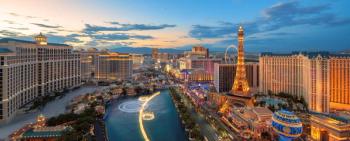
Supplements Sold on Military Bases Mislabel Caffeine Content, NSF and Harvard Researchers Find
Researchers also pointed out that 11 supplements that listed an herbal ingredient naturally containing caffeine still did not label caffeine as an ingredient in the product.
Following a December 2012 Consumer Reports finding that some energy drinks may have upwards of 20% more caffeine than stated on their labels, new research from
The study looked at 31 of the most popular, capsule-based dietary supplements sold on military bases. These samples were analyzed to compare their actual caffeine content against the caffeine content listed on their product labels. Of the 20 products out of 31 that listed caffeine as an ingredient present, six products did not state their specific amount of caffeine, even though the products were found to contain high amounts of caffeine ranging from 210–310 mg/serving (versus the 100 mg found in an 8-oz cup of coffee.) Five of the 20 products were inaccurately labeled and had a caffeine dose that was at least 10% more than what was labeled. Researchers said that, in the end, only 9 of the 20 products accurately listed their caffeine content.
Researchers also pointed out that 11 supplements that listed an herbal ingredient naturally containing caffeine still did not label caffeine as an ingredient in the product.
The study’s researchers say that accurately listing caffeine content on supplements can make a difference to consumers whose aggregate intake of products may result in an overall unhealthily high intake of caffeine. Military personnel, in particular, are said to have a high intake of energy drinks (which federal law does not require to list caffeine content levels). The Centers for Disease Control and Prevention says that up to 45% of service members consume energy drinks daily.
“It is common for military personnel and general consumers to drink other caffeinated beverages, like coffee, soda, and energy drinks, throughout the day,” says Ed Wyszumiala, general manager of NSF International’s dietary supplement certification programs. “Without accurately knowing the caffeine content in a supplement, people run the risk of consuming unhealthy levels of caffeine.”
Newsletter
From ingredient science to consumer trends, get the intel you need to stay competitive in the nutrition space—subscribe now to Nutritional Outlook.




